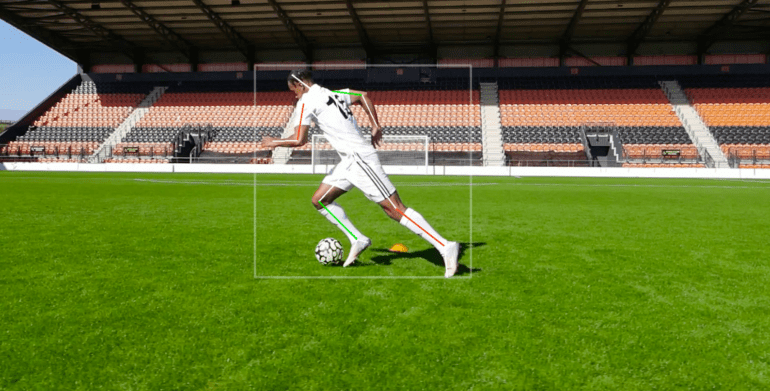TL;DR:
- AiScout, developed by AI.io, is an innovative app that uses AI for talent identification in football.
- Footballers can showcase their skills on the app, with AI analyzing their performance.
- Benchmark data is created from past information, aiding talent comparison.
- Premier League clubs like Chelsea FC and Burnley FC are already collaborating with AiScout.
- AI technology expedites player scouting and offers an edge in recruitment.
- Despite AI integration, AiScout emphasizes the enduring importance of the human element.
Main AI News:
In the competitive world of football, clubs are perpetually on the hunt for the next big star who could tip the scales in their favor. Enter AiScout, a groundbreaking initiative by London-based startup AI.io, which is redefining talent identification in professional football. Already collaborating with Premier League giants like Chelsea FC and Burnley FC, AiScout leverages artificial intelligence to unearth hidden gems in the footballing world.
AiScout, the brainchild of AI.io, is a cutting-edge app that allows aspiring footballers to showcase their skills to top clubs. Players can record themselves performing various drills and share their videos on the platform. What sets AiScout apart is its utilization of AI technology to meticulously track and analyze the movements of both players and the ball. This performance data is seamlessly integrated into a comprehensive system, enabling comparisons with benchmark data derived from previously added information.
While data analysis has long been a part of professional football’s quest for talent, AiScout contends that the finite number of players a human scout can evaluate remains a limiting factor. Richard Felton-Thomas, COO and director of sport science at AI.io, points out that top clubs typically assess around 2,000 players annually—a mere fraction of the talent pool.
“Being able to see that vast volume of players is impossible for purely human scouts,” Felton-Thomas acknowledges. “There are only so many weekends you can spend watching fixtures. But when it comes to subjectivity, you have to be highly selective about who you observe.”
Furthermore, AiScout’s AI-powered scouting method dramatically expedites the process of integrating young talent into a club’s academy. Felton-Thomas notes that youth players typically compete only once a week, making it time-consuming for scouts to gather sufficient validation.
While the integration of AI in sports and business is a growing trend, concerns about the potential for human replacement and programmed bias persist. However, AiScout’s team emphasizes that the “human element” will always remain pivotal.
“You still need that human interaction. You still need that human input,” Felton-Thomas asserts. “What we should not be doing is deciding careers purely by AI. It’s a source of information, providing us with added confidence in our decisions as humans—not replacing our judgment with machine-dictated choices.”
Conclusion:
AiScout’s AI-driven talent scouting approach has the potential to revolutionize the football market. By augmenting human scouting efforts with advanced technology, it offers clubs a more comprehensive and efficient way to discover new talent. As the industry continues to embrace AI, AiScout’s commitment to preserving the human element positions it as a pioneer in the evolving landscape of football talent identification.

